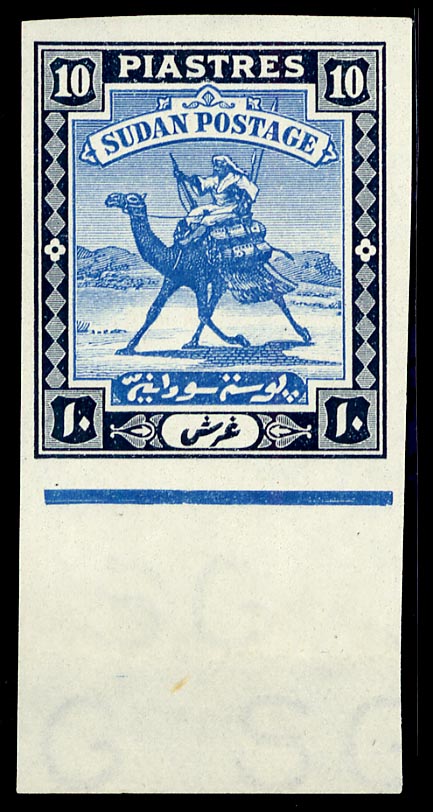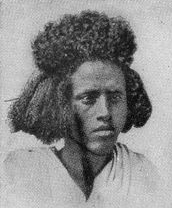|
Hadendowa
Hadendoa (or Hadendowa) is the name of a nomadic subdivision of the Beja people, known for their support of the Mahdiyyah rebellion during the 1880s to 1890s. The area historically inhabited by the Hadendoa lies today in parts of Sudan, Egypt and Eritrea. Etymology According to Roper (1930), the name ''Haɖanɖiwa'' is made up of ''haɖa'' 'lion' and ''(n)ɖiwa'' 'clan'. Other variants are ''Haɖai ɖiwa'', ''Hanɖiwa'' and ''Haɖaatʼar'' (children of lioness). Language The language of the Hadendoa is a dialect of Bedawi. History The southern Beja were part of the Christian kingdom of Axum during the sixth to fourteenth centuries. In the fifteenth century, Axum fell to the Islamization of the Sudan region, and although the Beja were never entirely subjugated, they were absorbed into Islam via marriages and trade contracts. In the seventeenth century, some of the Beja expanded southward, conquering better pastures. These became the Hadendoa, who by the eighteenth century ... [...More Info...] [...Related Items...] OR: [Wikipedia] [Google] [Baidu] |
Mahdist Sudan
The Mahdist State, also known as Mahdist Sudan or the Sudanese Mahdiyya, was a state based on a religious and political movement launched in 1881 by Muhammad Ahmad bin Abdullah (later Muhammad al-Mahdi) against the Khedivate of Egypt, which had ruled Sudan since 1821. After four years of struggle, the Mahdist rebels overthrew the Ottoman-Egyptian administration and established their own "Islamic and national" government with its capital in Omdurman. Thus, from 1885 the Mahdist government maintained sovereignty and control over the Sudanese territories until its existence was terminated by the Anglo-Egyptian forces in 1898. Mohammed Ahmed al-Mahdi enlisted the people of Sudan in what he declared a jihad against the administration that was based in Khartoum, which was dominated by Egyptians and Turks. The Khartoum government initially dismissed the Mahdi's revolution. He defeated two expeditions sent to capture him in the course of a year. The Mahdi's power increased, and his cal ... [...More Info...] [...Related Items...] OR: [Wikipedia] [Google] [Baidu] |
Beja People
The Beja people (, , ) are a Cushitic-speaking peoples, Cushitic Ethnicity, ethnic group native to the Eastern Desert, inhabiting a coastal area from southeastern Egypt through eastern Sudan and into northwestern Eritrea. They are descended from peoples who have inhabited the area since 4000 BC or earlier, although they were Arabization, Arabized by Arabs who settled in the region. They are nomadic and live primarily in the Eastern Desert. The Beja number around 1,900,000 to 2,759,000. Some of the Beja speak a Cushitic languages, Cushitic language called Beja language, Beja and some speak Tigre language, Tigre, a Semitic languages, Semitic language; most speak Arabic. In Eritrea and southeastern Sudan, many members of the Beni-Amer people, Beni-Amer grouping speak Tigre. Originally, the Beja did not speak Arabic, but the migration of the numerous Arabs, Arab tribes of Juhaynah, Mudar, Rabi'a ibn Nizar, Rabi'a, and many more to the Beja areas contributed to the Arabization and Is ... [...More Info...] [...Related Items...] OR: [Wikipedia] [Google] [Baidu] |
Anglo-Egyptian Sudan
Anglo-Egyptian Sudan ( ') was a condominium (international law), condominium of the United Kingdom and Kingdom of Egypt, Egypt between 1899 and 1956, corresponding mostly to the territory of present-day South Sudan and Sudan. Legally, sovereignty and administration were shared between both Egypt and the United Kingdom, but in practice the structure of the condominium ensured effective British control over Sudan, with Egypt having limited local power and influence. In the meantime, Egypt itself fell under increasing British influence. Following the Egyptian Revolution of 1952, Egypt pushed for an end to the condominium, and the independence of Sudan. By agreement between Egypt and the United Kingdom in 1953, Sudan was granted independence as the Republic of Sudan (1956–1969), Republic of the Sudan on 1 January 1956. In 2011, the south of Sudan itself became independent as the Republic of South Sudan. Muhammad Ali of Egypt, Muhammad Ali Muhammad Ali's rise to power, took contr ... [...More Info...] [...Related Items...] OR: [Wikipedia] [Google] [Baidu] |
Islamization Of Sudan
The Islamization of the Sudan region (Sahel) encompasses a prolonged period of religious conversion, through military conquest and trade relations, spanning the 8th to 16th centuries. Following the 7th century Muslim conquest of Egypt and the 8th-century Muslim conquest of North Africa, Arab Muslims began leading trade expeditions into Sub-Saharan Africa, first towards Nubia, and later across the Sahara into West Africa. Much of this contact was motivated by an interest in trans-Saharan trade, particularly the slave trade. The proliferation of Islamic influence was largely a gradual process. The Christian kingdoms of Nubia were the first to experience Arab incursion starting in the 7th century. They held out through the Middle Ages until the Kingdom of Makuria and Old Dongola both collapsed in the early 14th century. Sufi orders played a significant role in the spread of Islam from the 9th to 14th centuries, and they proselytized across trade routes between North Afric ... [...More Info...] [...Related Items...] OR: [Wikipedia] [Google] [Baidu] |
History Of Anglo-Egyptian Sudan
In January 1899, an Anglo-Egyptian agreement restored Egyptian rule in Sudan but as part of a condominium, or joint authority, exercised by the United Kingdom and Egypt. The agreement designated territory south of the twenty-second parallel as Anglo-Egyptian Sudan. Although it emphasized Egypt's indebtedness to Britain for its participation in the reconquest, the agreement failed to clarify the juridical relationship between the two condominium powers in Sudan or to provide a legal basis for continued British governing of the territory on behalf of the Khedive. Article II of the agreement specified that: The British governor-general, who was a military officer, reported to the Foreign Office through its resident agent in Cairo. In practice, however, he exercised extraordinary powers and directed the condominium government from Khartoum as if it were a colonial administration. Sir Reginald Wingate succeeded Kitchener as governor-general in 1899. In each province, two inspec ... [...More Info...] [...Related Items...] OR: [Wikipedia] [Google] [Baidu] |
Dad's Army
''Dad's Army'' is a British television British sitcom, sitcom about the United Kingdom's Home Guard (United Kingdom), Home Guard during the World War II, Second World War. It was written by Jimmy Perry and David Croft (TV producer), David Croft, and originally broadcast on BBC One, BBC1 from 31 July 1968 to 13 November 1977. It ran for nine series and 80 episodes in total; a Dad's Army (1971 film), feature film released in 1971, a Dad's Army (stage show), stage show and a Dad's Army#Radio series, radio version based on the television scripts were also produced. The series regularly gained audiences of 18 million viewers and is still shown internationally. The Home Guard consisted of local volunteers otherwise ineligible for military service, either because of age (hence the title ''Dad's Army''), medical reasons, or by being in Reserved occupation, professions exempt from conscription. Most of the platoon members in ''Dad's Army'' are over military age and the series stars seve ... [...More Info...] [...Related Items...] OR: [Wikipedia] [Google] [Baidu] |
The Atlantic
''The Atlantic'' is an American magazine and multi-platform publisher based in Washington, D.C. It features articles on politics, foreign affairs, business and the economy, culture and the arts, technology, and science. It was founded in 1857 in Boston as ''The Atlantic Monthly'', a literary and cultural magazine that published leading writers' commentary on education, the abolition of slavery, and other major political issues of that time. Its founders included Francis H. Underwood and prominent writers Ralph Waldo Emerson, Oliver Wendell Holmes Sr., Henry Wadsworth Longfellow, Harriet Beecher Stowe, and John Greenleaf Whittier. James Russell Lowell was its first editor. During the 19th and 20th centuries, the magazine also published the annual ''The Atlantic Monthly Almanac''. The magazine was purchased in 1999 by businessman David G. Bradley, who fashioned it into a general editorial magazine primarily aimed at serious national readers and " thought leaders"; in 201 ... [...More Info...] [...Related Items...] OR: [Wikipedia] [Google] [Baidu] |
Rudyard Kipling
Joseph Rudyard Kipling ( ; 30 December 1865 – 18 January 1936)''The Times'', (London) 18 January 1936, p. 12. was an English journalist, novelist, poet, and short-story writer. He was born in British Raj, British India, which inspired much of his work. Kipling's works of fiction include the ''Jungle Book'' -logy, duology (''The Jungle Book'', 1894; ''The Second Jungle Book'', 1895), ''Kim (novel), Kim'' (1901), the ''Just So Stories'' (1902) and many short stories, including "The Man Who Would Be King" (1888). His poems include "Mandalay (poem), Mandalay" (1890), "Gunga Din" (1890), "The Gods of the Copybook Headings" (1919), "The White Man's Burden" (1899), and "If—" (1910). He is seen as an innovator in the art of the short story.Rutherford, Andrew (1987). General Preface to the Editions of Rudyard Kipling, in "Puck of Pook's Hill and Rewards and Fairies", by Rudyard Kipling. Oxford University Press. His children's books are classics; one critic noted "a versatile and l ... [...More Info...] [...Related Items...] OR: [Wikipedia] [Google] [Baidu] |
Fuzzy-Wuzzy
"Fuzzy-Wuzzy" is a poem by the English author and poet Rudyard Kipling, published in 1892 as part of '' Barrack Room Ballads''. It describes the respect of the ordinary soldier for the bravery of the Hadendoa warriors who fought the British army in Sudan and Eritrea. Background "Fuzzy-Wuzzy" was the term used by British soldiers for Beja warriors who were supporting the Mahdi of Sudan in the Mahdist War. The term relates to the elaborate ''tiffa'' hair style favoured by the Hadendoa tribe, a subdivision of the Beja people. The Beja people were one of several broad multi-tribal groupings supporting the Mahdi, and were divided into six tribes: Hadendoa, Halanga, Amarar, Beni-Amer, Habab, and Bishariyyin. All of these are semi-nomadic and inhabit the Sudan's Red Sea Hills, Libyan Desert, and southern Egypt. The Beja provided a large number of warriors to the Mahdist forces. They were armed with swords and spears and some of them carried breech-loaded rifles which ha ... [...More Info...] [...Related Items...] OR: [Wikipedia] [Google] [Baidu] |
Round The Black Man's Garden (1893) (14589527069)
Round or rounds may refer to: Mathematics and science * Having no sharp corners, as an ellipse, circle, or sphere * Rounding, reducing the number of significant figures in a number * Round number, ending with one or more zeroes * Round (cryptography) * Roundness (geology) * Roundedness, when pronouncing vowels * Labialization, when pronouncing consonants Music * Round (music), a type of composition * ''Rounds'' (album), by Four Tet Places * The Round, a theatre in England * Round Point, in the South Shetland Islands * Rounds Mountain, in the US * Round Mountain (other), several places * Round Valley (other), several places Repeated activities * Round (boxing) * Round (dominoes) * Grand rounds, in medicine * Round of drinks * Funding round * Doing the rounds, or patrol Other uses * Round (surname) * Rounds (surname) * Round shot * Cartridge (firearms) * Round steak * Cattle * Bullion coins that are not legal tender, e.g. silver rounds * Rounds (website), ... [...More Info...] [...Related Items...] OR: [Wikipedia] [Google] [Baidu] |









